It’s the HAPPY FATHER’S DAY edition of Whadda Day, featuring some of the Shaver Watersports Specialty Campers!
Podcast: Play in new window | Download
Subscribe: Apple Podcasts | Google Podcasts | Spotify | Stitcher | Email | RSS
Because we’re not in the habit of writing letters to our kids much these days – with brief texts being the primary form of written communication between us – it can be challenging to come up with what to write to our campers. This is especially true when you’re writing more letters than you’re receiving, which will most likely be the case, because while your child is busy at camp, you will be at your home or office glued to your computer, looking at photos of the fun they’re having.
To keep letters fun and entertaining for your camper, here are some creative ideas:
Especially for younger campers (or for kids who think writing is torture), make it easy for them to send you news without having to worry about writer’s block or grammar. Create a funny, fill-in-the-blanks response letter for them, or print one that’s all ready to go!
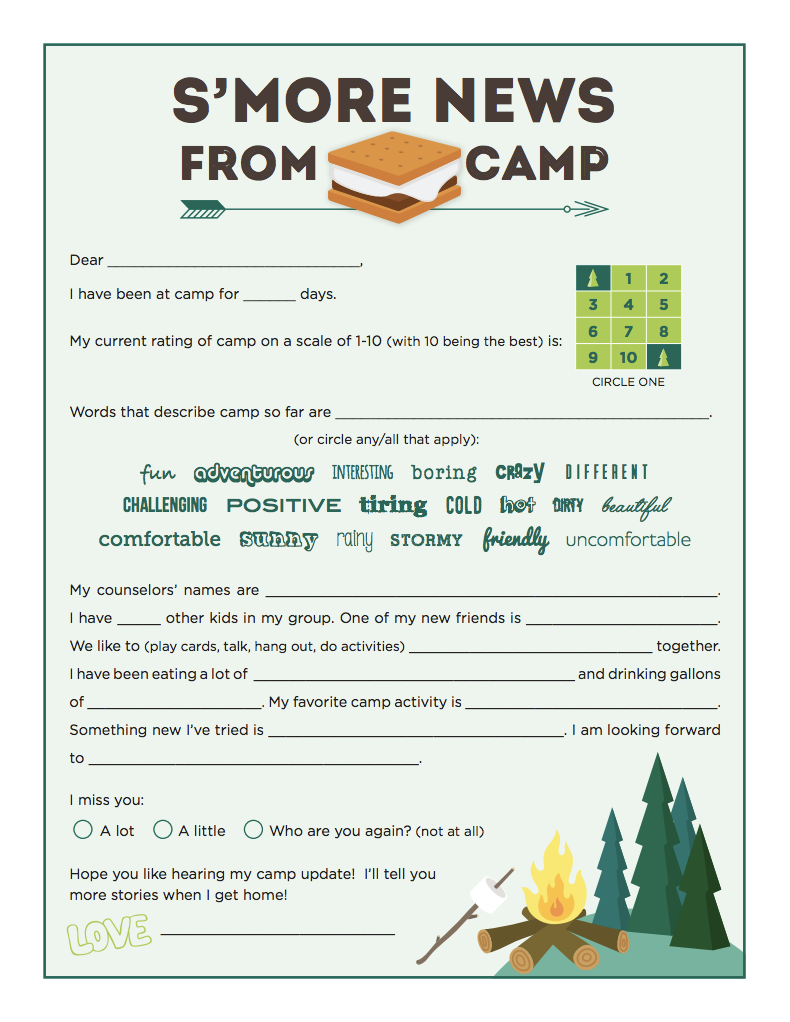
Another easy, fun idea is to provide a small return postcard with something like, “The fun things I could be doing right now instead of writing home:” and provide three blank spaces.
Include the fill-in-the-blanks letter with a self-addressed stamped envelope. Ideally, your camper will take 60 seconds from their fun to complete the blanks and send it back! However, I offer no guarantees.
Provide a “Top 10” List (à la David Letterman)
You can create your own Top 10 list and provide an entertaining letter to your camper, or you can try one of these:
Mix it up by writing a letter from the perspective of your family dog, a stuffed animal, your camper’s blanket, or some sports item (skate board, bike, etc.)
Why not think up a funny story to go along with a picture you’ve seen of your camper on the camp’s website?
“I saw you climbing up a huge wall at camp. I’m guessing that you were escaping from the camp cook who was trying to make you eat Brussels sprouts?”
This is always such a great activity – even when your child isn’t at camp. But camp is an especially good time to think about what you love about your camper. Get each family member who’s still at home to write a sentence or two about what they love about your camper. You could even collect sentences via email from grandparents and extended family. What camper wouldn’t love to hear how much they are loved and appreciated?
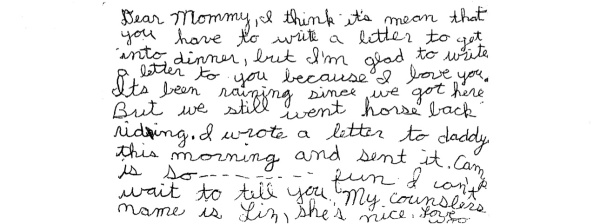
Postcard from camp to my parents, 1977
Have fun writing letters to your camper, and enjoy the hand-written letters you’ll get in return. You’ll want to save those forever!
Here are some additional letter-writing tips:
Make an envelope out of their favorite magazine, a sports article from the newspaper, or something else fun or colorful.
Type the letter in funny fonts or backwards, or hand write it in a circle or in a bunch of different colors.
Ask simple questions and try to just include one per letter.
Include a joke or riddle
Letters to Camp is a whole blog dedicated to letter-writing ideas! Check it out!
Article originally published at Sunshine Parenting.
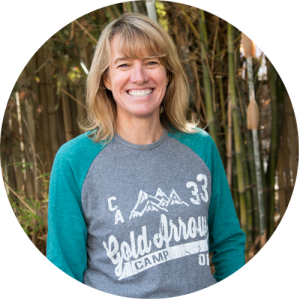
Audrey “Sunshine” Monke, MA, has been the owner of Gold Arrow Camp since 1989 and currently serves as the Chief Visionary Officer. In addition to her vision-casting and mentoring at GAC, Sunshine is an author (Happy Campers: 9 Summer Camp Secrets for Raising Kids Who Become Thriving Adults), podcast host, speaker and coach on the topics of parenting, social skills, and happiness. Find out more at her website, Sunshine Parenting.
It’s the first day of GAC 2021. Cabin 28 kicks off Whadda Day!
Podcast: Play in new window | Download
Subscribe: Apple Podcasts | Google Podcasts | Spotify | Stitcher | Email | RSS
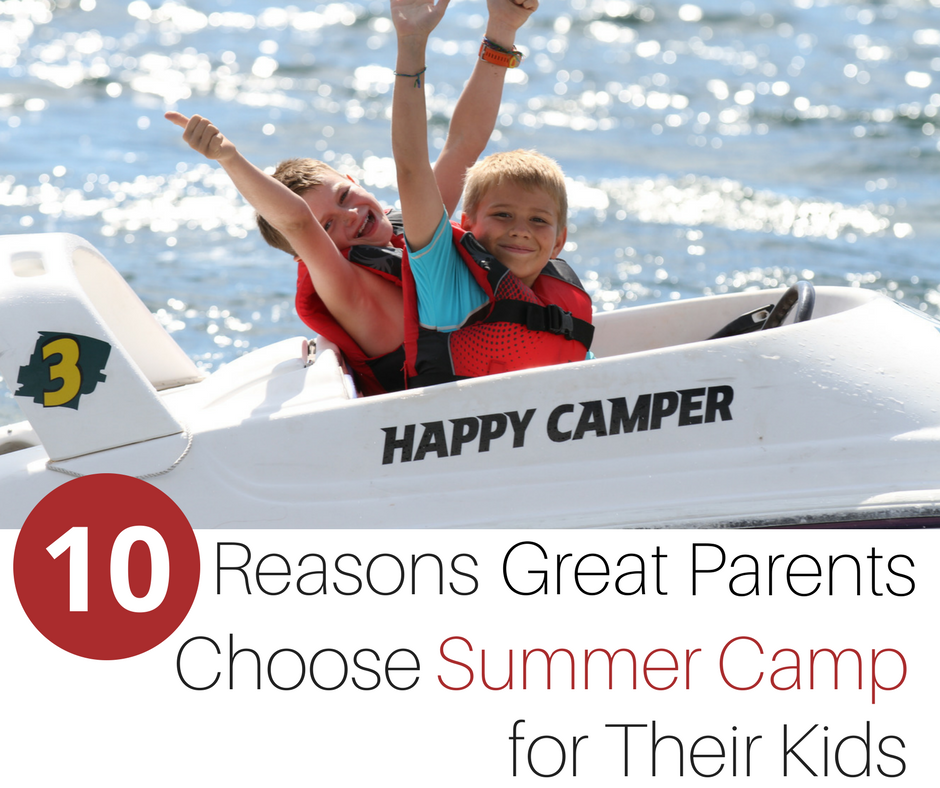
My shy, quiet nine-year-old went to camp not knowing a soul. Two weeks later, she came home transformed. She blossomed. She made friends, learned a multitude of activities, felt safe, loved, confident, and happy — really, really happy. As hard as it was on me, it was all worth it for her. It was the single best thing I have ever done for her.
-First-time camp parent
Is your kid going to camp this summer? Congratulations! You’re giving them an experience that may have many life-long, positive benefits. You are giving them the opportunity to grow and develop skills and character traits that are often hard to develop in the comforts of home.
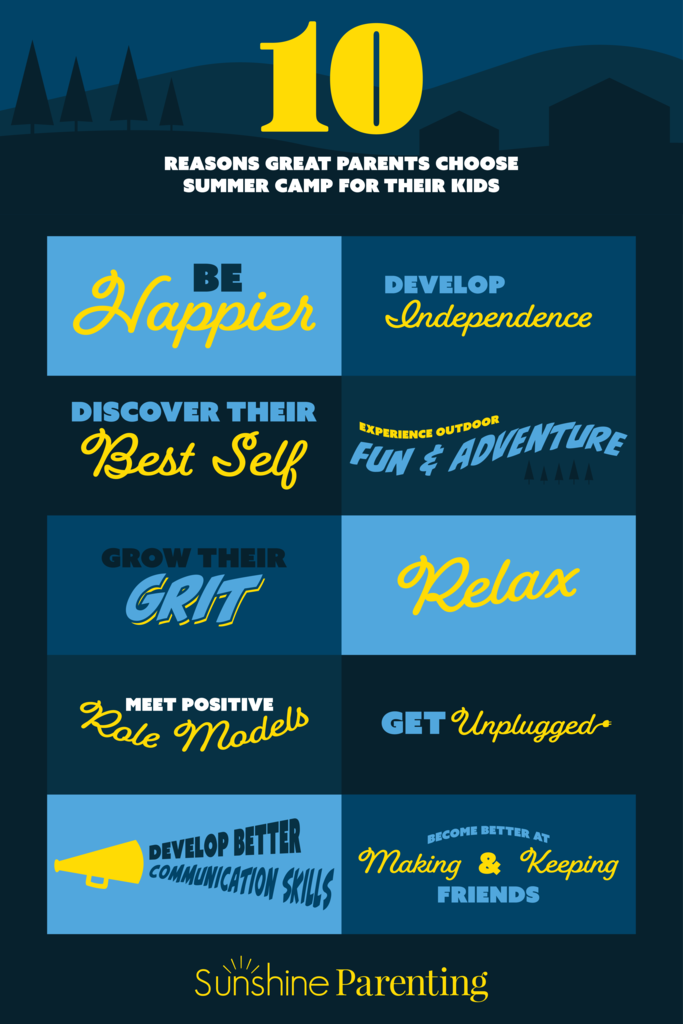
Let this list remind you about some of the many reasons why you are being a great parent by sending your child to camp this summer!
Camp makes me happy and nothing can prepare me for life as well as this environment.
“Come on,” you’re thinking, “How can two weeks in the mountains change my child’s overall happiness level?” Good question. In research I conducted a few years ago, one of the things that both parents and kids agreed was that children feel happier after being at camp. The combination of positive emotions, deep friendships, being disconnected from technology, and just plain fun makes kids feel happier at and after camp. I’ve previously written about how the science of positive psychology may explain why kids flourish at camp and demonstrate increased happiness levels during and after their camp experience. In this era, when we’re seeing our kids suffer from rising rates of depression and anxiety, isn’t it nice to know that there’s a place where kids can go that actually serves as a positive intervention for overall happiness?
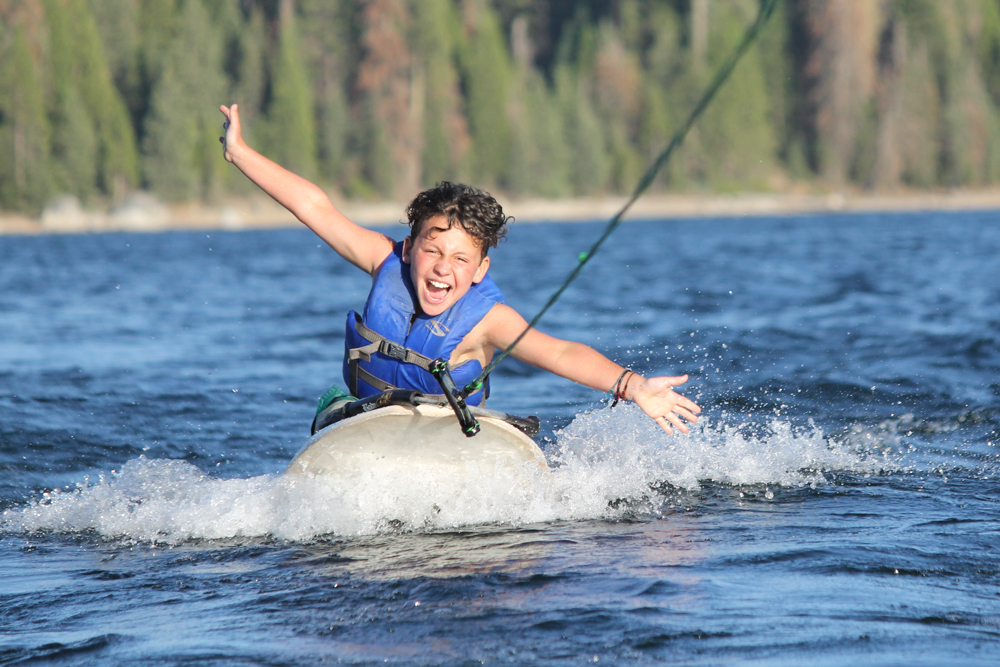 #2 DISCOVER THEIR BEST SELF
#2 DISCOVER THEIR BEST SELFBeing at camp gives me this sense of belonging that I’ve never felt anywhere else.
In many different ways, but all with the same underlying meaning, campers describe camp as a place where they can be themselves. They feel open to saying and being who they really are, not stuck conforming to what’s considered “cool” and “acceptable” in the outside world. Surrounded by a diverse group of friends of different ages and backgrounds, kids develop the ability to explore their own interests and express their own thoughts better.
As a parent, I hate to admit that I sometimes push my own interests on my kids, even when I don’t mean to. For example, I might say, “You’re so good at softball! Don’t you want to keep playing?” when my child says she doesn’t want to play anymore. When kids step away from their regular activities and normal life schedules (as well as their well-meaning but often overly directive parents), they have the opportunity to think through what’s really important to them as individuals.
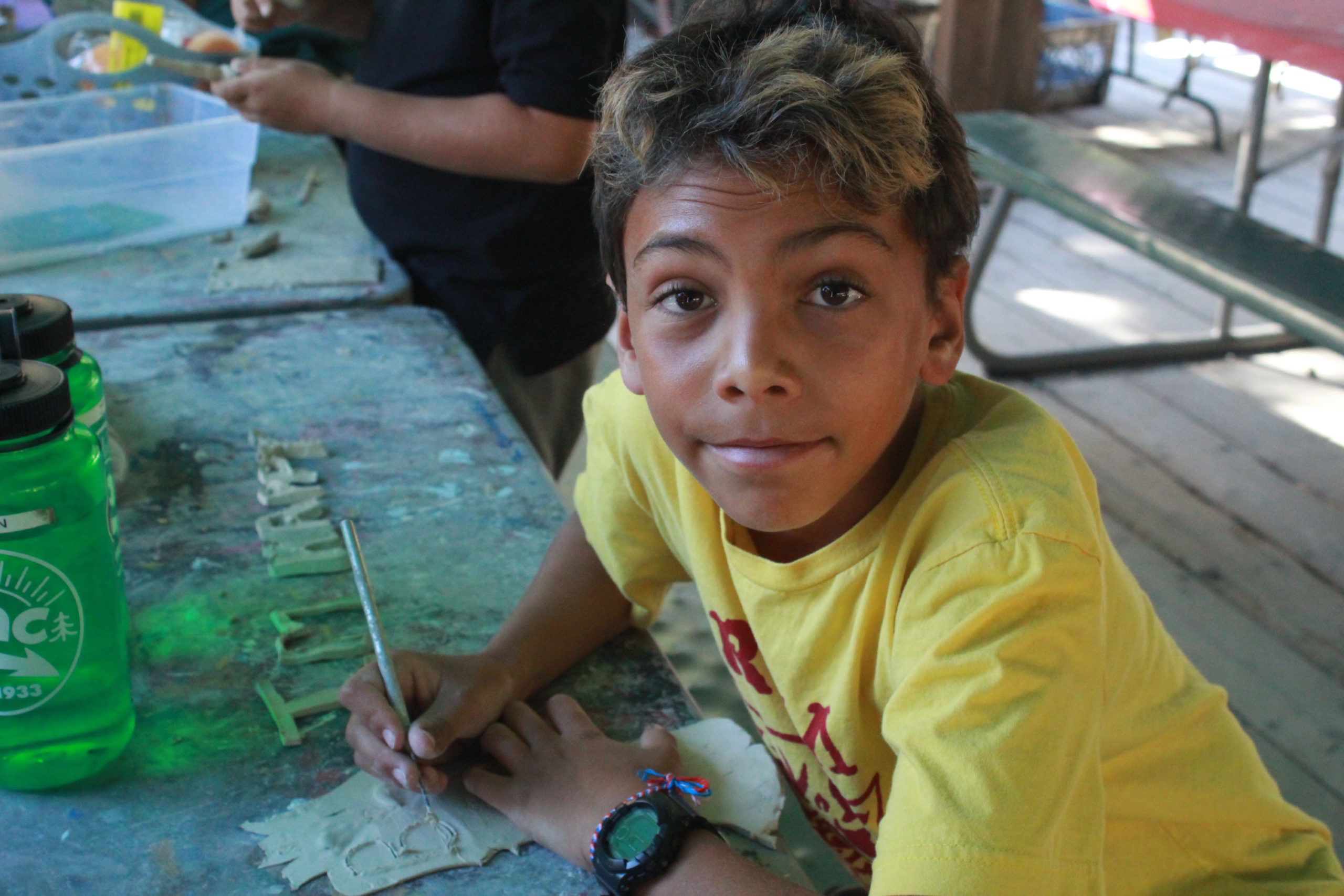 #3 GROW THEIR GRIT
#3 GROW THEIR GRITThe counselors challenged me to do things I wouldn’t normally do at home.
Learning self-reliance, experiencing mistakes and failures, and reaching for goals are all camp experiences that help campers develop their grit, an important character trait that we’ve learned is critical to success in life. Camp offers a unique experience to children – the chance to be away from their parents for a short period of time and learn to handle more things on their own. Without parents to step in and assist, or rescue from mistakes, kids develop confidence in their own ability to make decisions and solve problems. Just being “on their own” is a huge confidence builder for kids, and they feel more self-reliant after being responsible for themselves and their belongings for a few weeks.
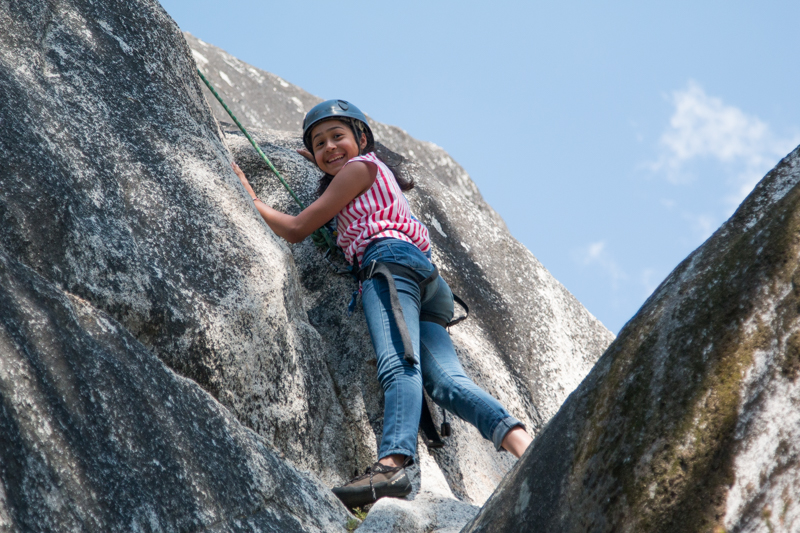 #4 MEET POSITIVE ROLE MODELS
#4 MEET POSITIVE ROLE MODELSCamp has made me into a leader, having the best role models as my counselors to look up to.
One of the best things that happens at camp is that kids get exposed to a different kind of adult role model than what they see in the media. No reality TV stars will be gracing the waterfront or backpacking trips at summer camp. No perfectly coiffed and stick-thin model will be standing next to them brushing teeth in the bathroom. No macho guy who speaks disrespectfully about women will be leading the campfire discussion. In fact, the college students who choose to spend their summer working at camp are an outstanding bunch of young adults. Most are stellar students with outstanding leadership skills. They love the outdoors and working with kids, and they are the kind of people we want our kids to emulate. They love leading discussions on topics that are important to their campers and helping them build confidence. There’s no focus on appearance at summer camp, and so designer clothes, makeup, and trendy hair-styles don’t hold the same importance that they do at junior high or high school. In fact, the predominant style at camp is pajama pants paired with dirt and sweat-stained t-shirts. And we hardly ever spend time in front of a mirror.
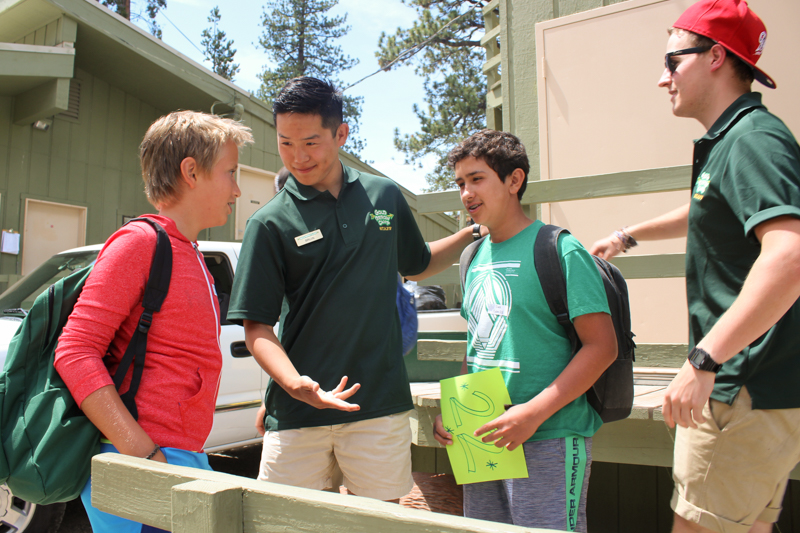 #5 DEVELOP BETTER COMMUNICATION SKILLS
#5 DEVELOP BETTER COMMUNICATION SKILLSThe other part of camp that has influenced me the most is the simple idea of trying to always smile.
In post-camp surveys, campers consistently write about how ditching their electronics was one of the best things about their camp experience. In fact, it’s a practice they take home with them, setting aside phones during meals with friends so they can connect more genuinely, face-to-face. In the absence of technological tethers, campers have many hours each day to practice these face-to-face communication skills. They learn the importance of things like eye contact, smiles, and body language as they positively interact with their peers. Counselors help facilitate lively discussions, and campers learn to ask each other questions, listen more carefully, and figure out common interests. Kids learn and practice valuable communication skills at camp, which they can use throughout their lives.
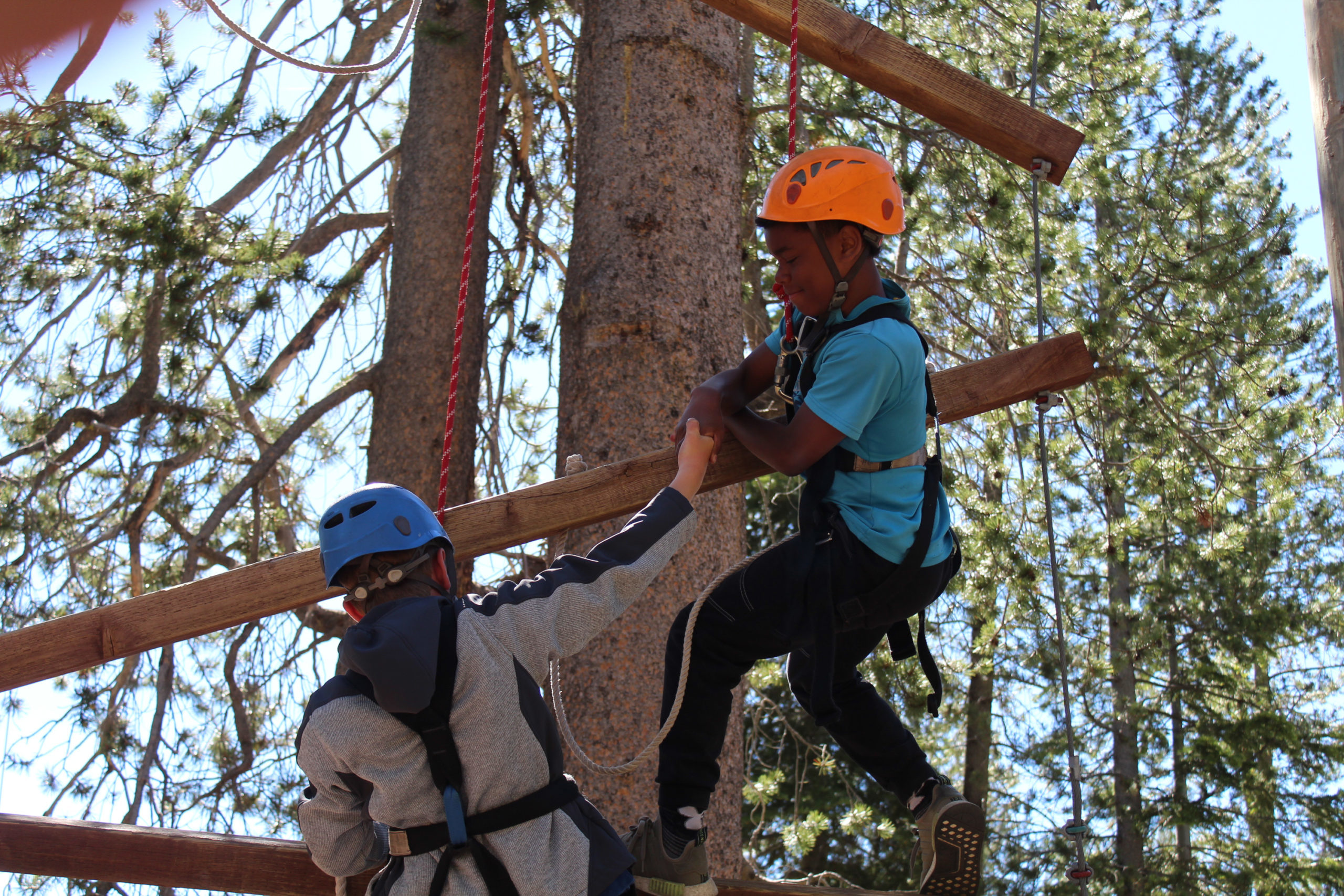 #6 DEVELOP INDEPENDENCE
#6 DEVELOP INDEPENDENCEGoing to camp has made me even more independent and a much better people-person. I am able to go confidently up to someone and introduce myself, or hang out with someone new because of my time at camp.
You are giving your child the opportunity to live and thrive without being with you and under your constant scrutiny. The growth in confidence and independence happen at camp BECAUSE you are not there. Read more about why camp experiences help kids develop independence in Parking Your Helicopter.
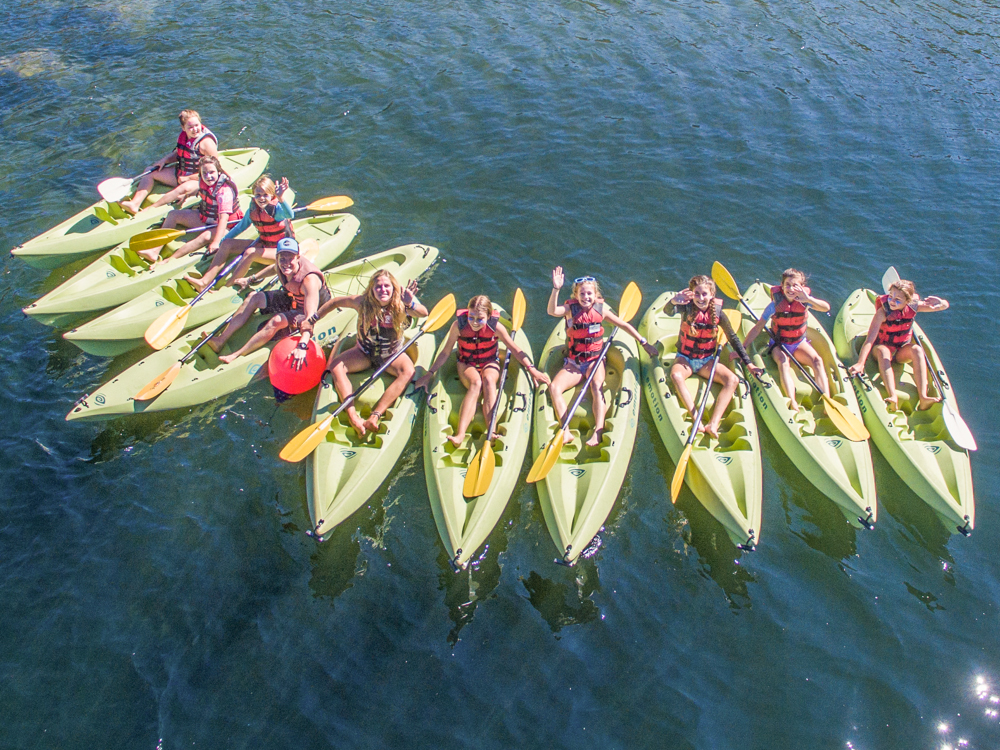 #7 EXPERIENCE OUTDOOR CHILDHOOD FUN & ADVENTURE
#7 EXPERIENCE OUTDOOR CHILDHOOD FUN & ADVENTUREI have so many fond memories of camp that I can’t choose a particular one. However, some of my favorites memories include sleeping under the stars, doing fun activities, and spending time with friends.
You are giving your child the gift of magical childhood memories – dirt, adventure, story, and joke-filled days and nights spent with friends outdoors, under the stars, and around the campfire. These childhood memories will last forever. And, as Michael Thompson, PhD, so eloquently states, “Our sweetest childhood memories do not include adults.”
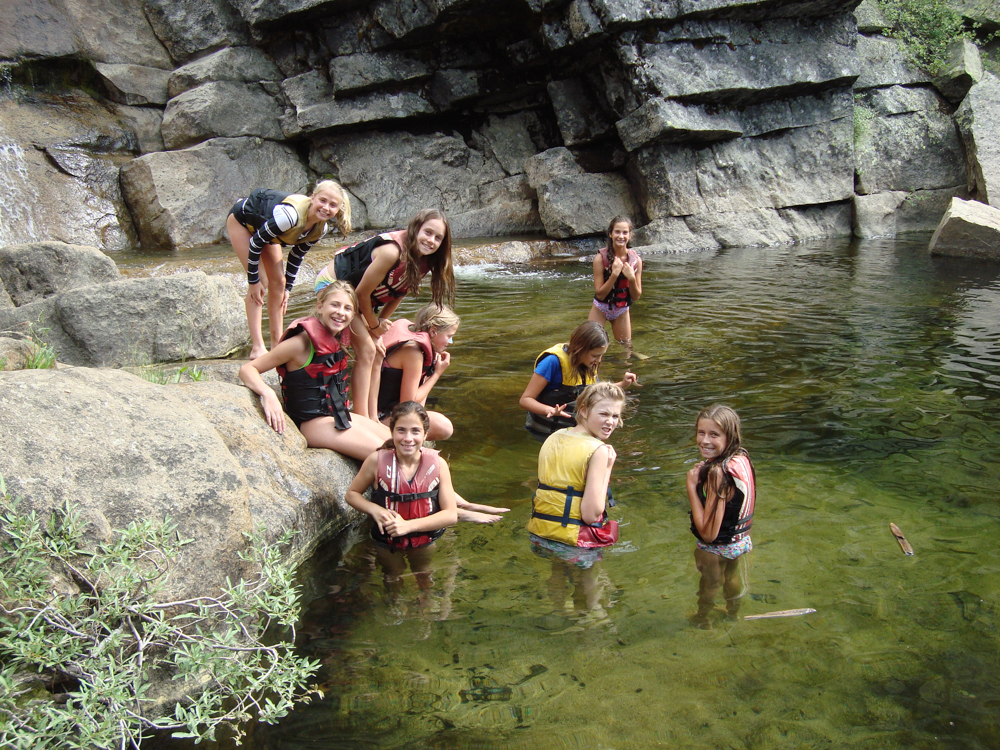 #8 RELAX
#8 RELAXThe atmosphere is so relaxed.
You are giving your child a break from the pressures and stress of competitive sports, school, and you. Forgive me if that offends, but I, too, am a well-meaning but over-involved parent who provides just a bit too much advice, feedback, and guidance to my children. Our kids need a break from our well-intentioned involvement in their lives.
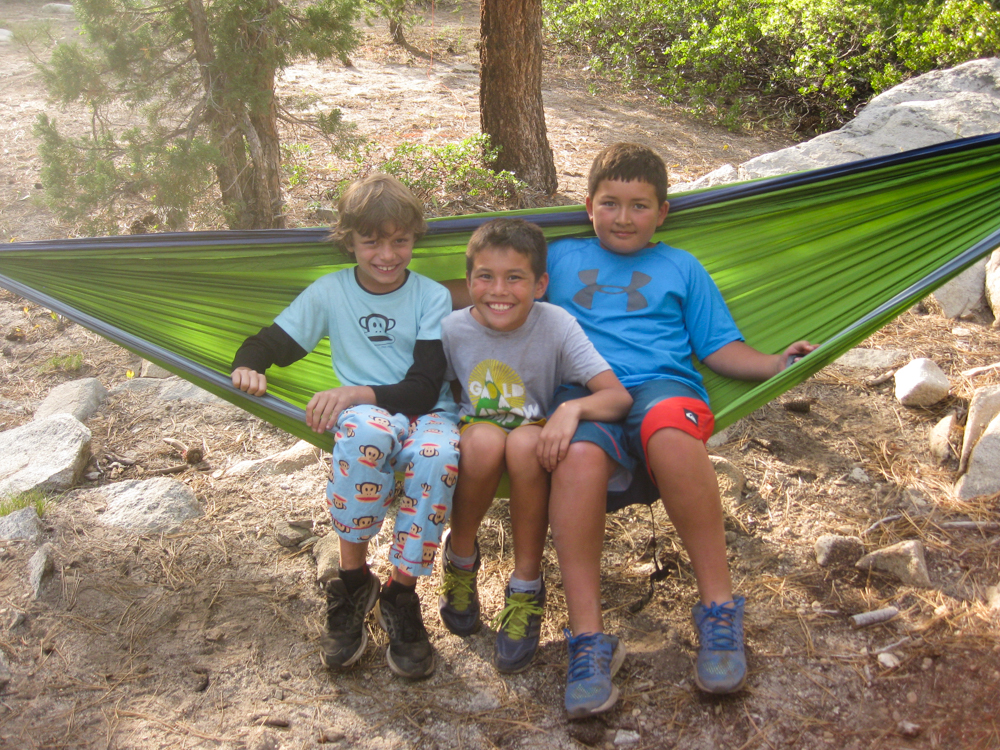 #9 GET UNPLUGGED
#9 GET UNPLUGGEDCamp has helped me appreciate nature and the outdoors a lot more than I think I would have if I didn’t go. I can go without my phone or connection to social media awhile, because camp has shown me that amazing stuff happens when you put your phone down and have a nice conversation with someone.
You are giving your child the chance to unplug and connect face-to-face with other kids and positive young adult role models.
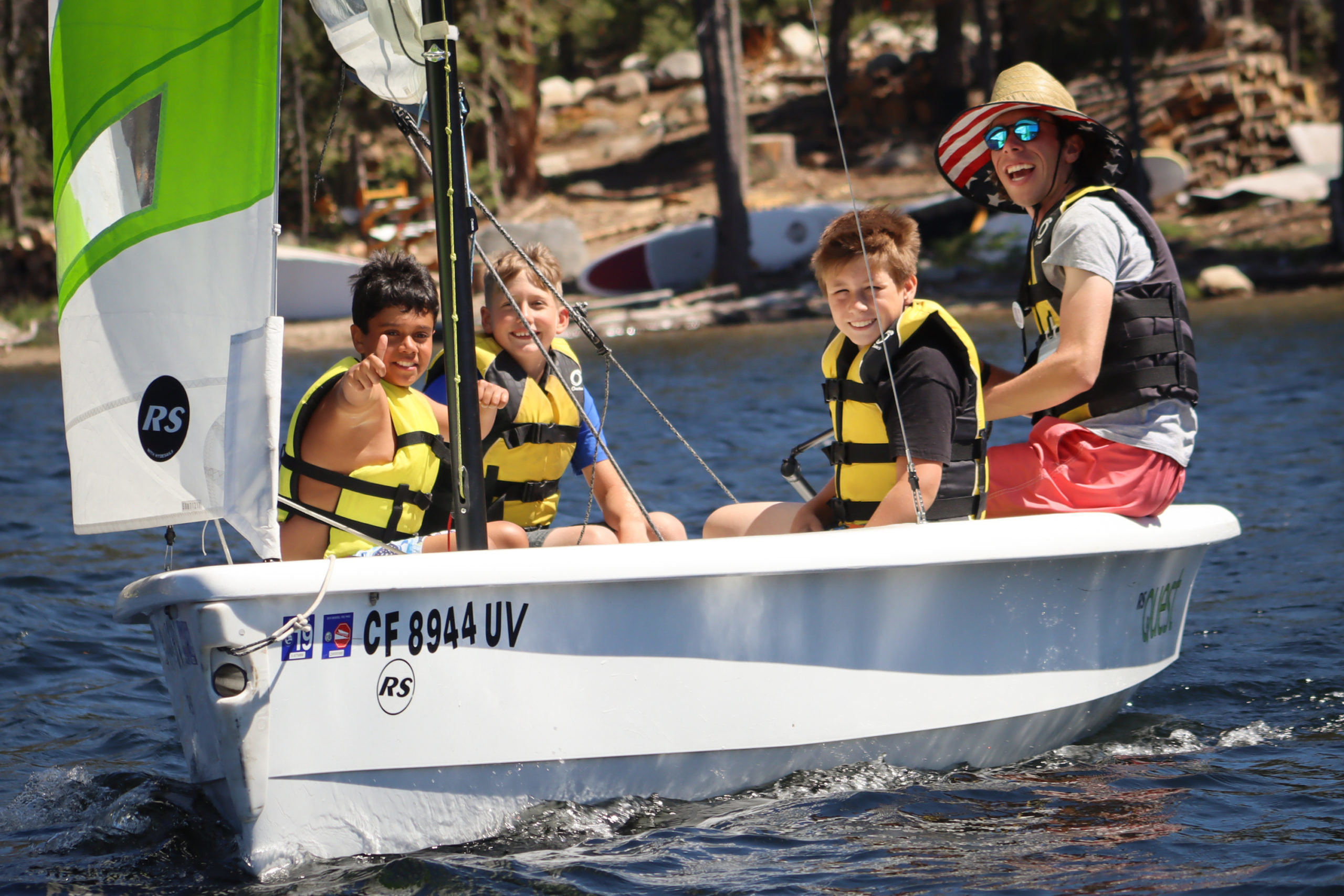 #10 BECOME BETTER AT MAKING AND KEEPING FRIENDS
#10 BECOME BETTER AT MAKING AND KEEPING FRIENDSI feel like I have become a kinder person and am better at making friends because of camp.
The bonding and friendships that happen at camp are different from those that occur at school and on sports teams. The intensity of living together and experiencing life together, without distractions, creates the ideal setting to form life-long friendships and really get to know people well. Read more about camp friendships.
So, if people ever question your decision to send your young child to a traditional, longer camp stay this summer, let them know that it’s hard for you to let your child go, but that you’re giving your child a gift that will have more impact than any material item you’ve ever given.
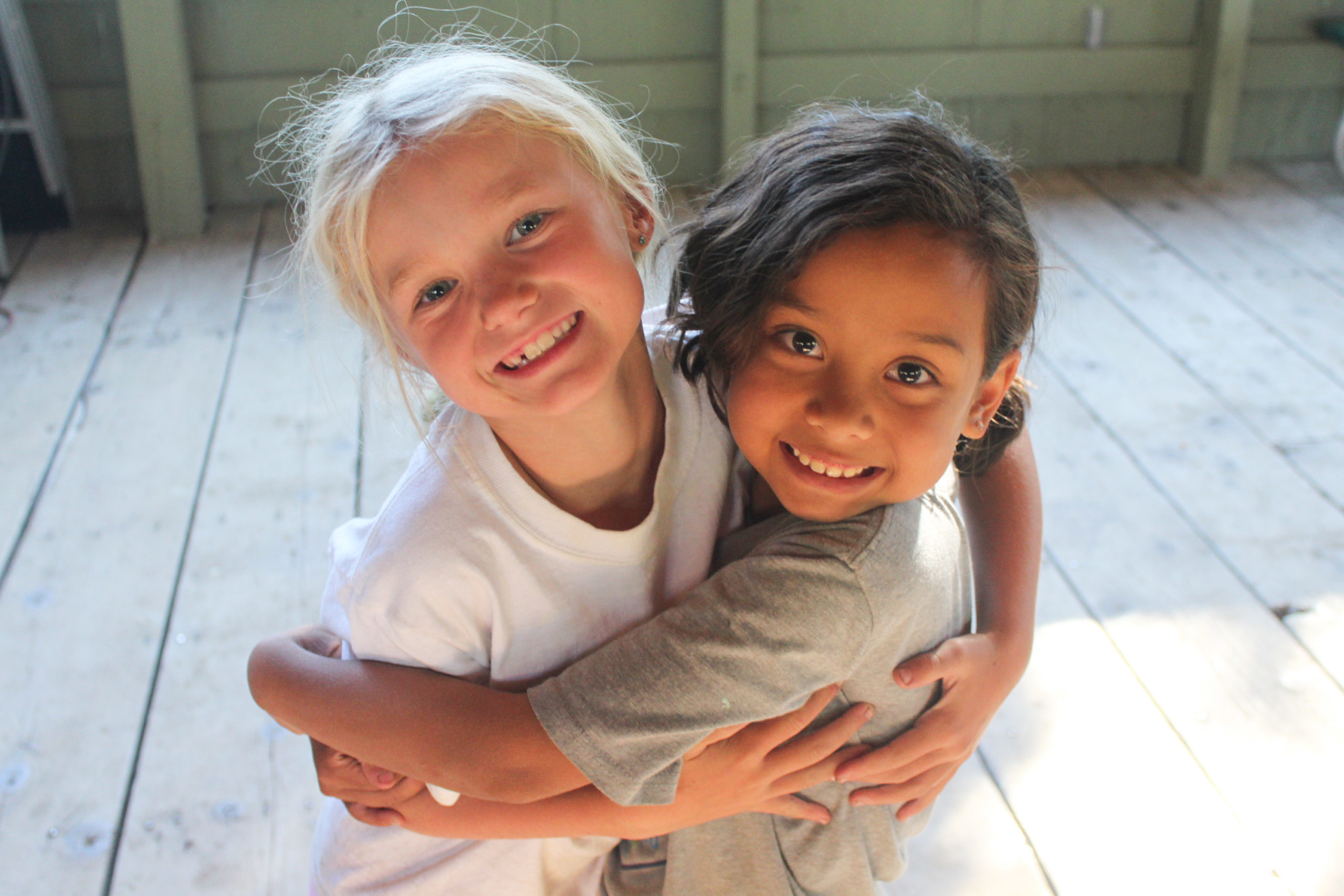
There you have it! Ten of the reasons that great parents send their kids to camp! Don’t you feel good about your decision?
Check out the Sunshine Parenting Podcast for TONS of resources and interviews about summer camp, parenting, and raising thriving kids!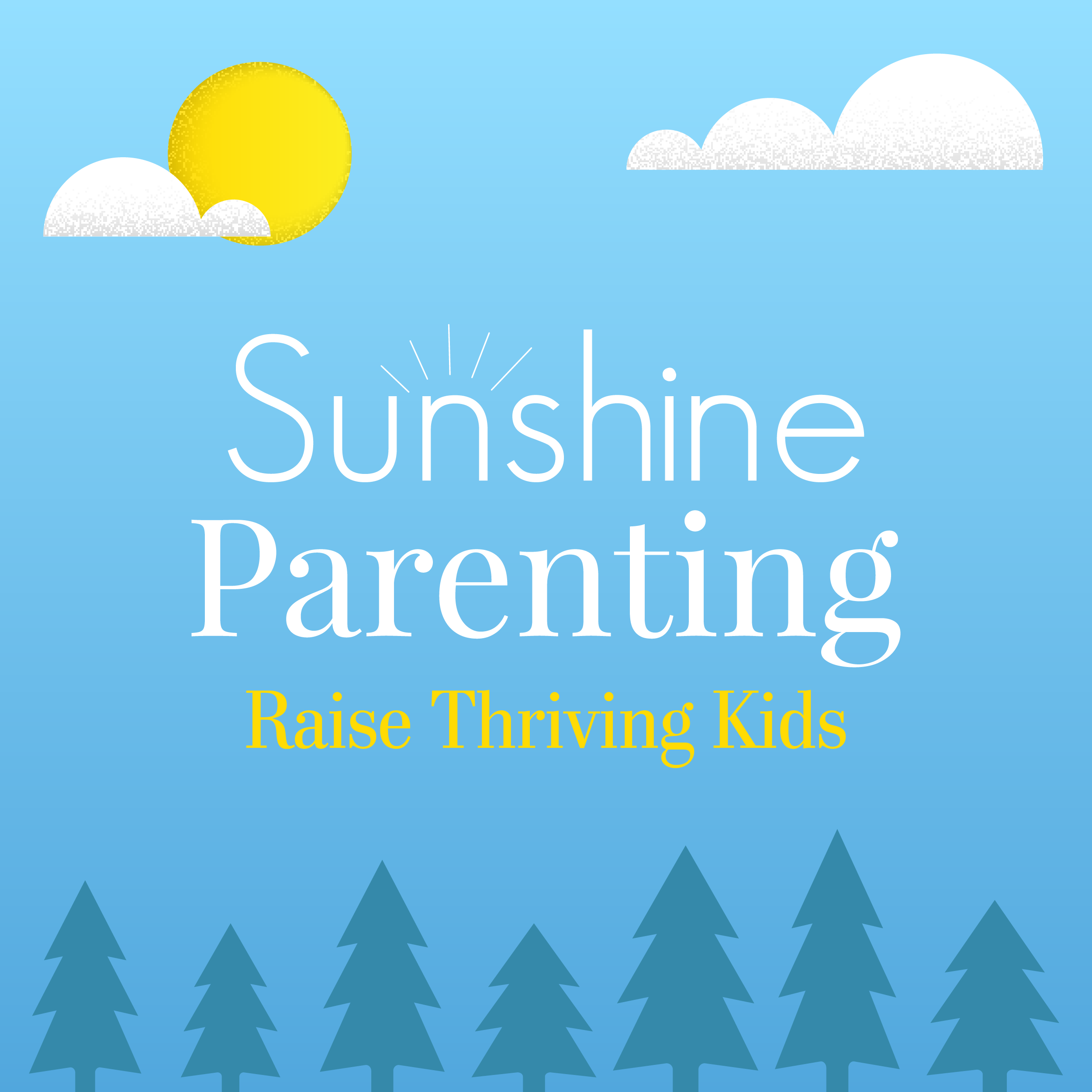
Article originally published at Sunshine Parenting.

Audrey “Sunshine” Monke, MA, has been the owner of Gold Arrow Camp since 1989 and currently serves as the Chief Visionary Officer. In addition to her vision-casting and mentoring at GAC, Sunshine is an author (Happy Campers: 9 Summer Camp Secrets for Raising Kids Who Become Thriving Adults), podcast host, speaker and coach on the topics of parenting, social skills, and happiness. Find out more at her website, Sunshine Parenting.
https://www.cdc.gov/childrensmentalhealth/features/anxiety-depression-children.html
As parents, we spend a lot of time making our kids comfortable. Feeling cold? I’ll grab you a sweatshirt. Hungry? Let me get you a snack right away! Kid being unkind? I’ll complain to the teacher and make her stop!
At times, I’ve felt like it’s my duty to alleviate any discomfort my child is feeling. I think a lot of parents feel this way during this unique era of “overparenting.” One friend described the “lawnmower” parent who grooms the path for their child to make it smooth and without any bumps.
Some of us by nature are more “gritty” than others, able to push ourselves and deal with discomfort. Think about endurance runners who stumble across the finish line, bloody and exhausted. Others of us are more prone to climbing deeper into our turtle shell when faced with life’s inevitable discomforts and challenges. We tend to hunker safely inside our comfort zone and not let anyone or anything pull us out.
No matter where our kid’s (or our own) starting point may be, it’s important to explore the concept of being uncomfortable and, as parents, learn to tolerate that discomfort when our kids are feeling anxious, nervous, or afraid.
It’s not easy. Our natural instinct is to protect our kids from any and all discomfort. And when they’re little, that natural instinct serves us (and them) well. We change dirty diapers, feed them when they’re hungry, grab them before they run into the street.
Emotional discomfort is even harder to handle as a parent. When a kid makes a mean comment to our child and hurts his or her feelings, we bristle. We want to alleviate the discomfort immediately, so we call the school, the other kid’s parents, and the FBI to come in and stop that horrid child from making our beloved feel uncomfortable.
How can we best help our kids develop into adults who persevere and can handle life’s inevitable setbacks?
We must learn to coach our children to tolerate their discomfort. If we help them figure out coping strategies, they will be better able to respond the next time an uncomfortable or painful situation arises. For our kids to develop their grit and learn to expand their comfort zone, we need to be supportive, engaged, and empathetic, without immediately swooping in to ease their discomfort.

Audrey “Sunshine” Monke has been the owner of Gold Arrow Camp since 1989. She is the author of the 2019 parenting book, Happy Campers: 9 Summer Camp Secrets for Raising Kids Who Become Thriving Adults. “Sunshine” has been writing and podcasting about summer camp, well-being, social skills, and parenting at Sunshine Parenting since 2012.
We are so excited to be back at camp for another summer of fun, friends, and growth! Our staff is a big part of what helps make camp the special place that it is! Check out our Meet the Staff page to learn a little bit more about all of our counselors. Be sure to check back often as more staff members continue to join the team!
Be sure to also follow us on Instagram and Facebook for fun content! Every Monday is “Meet the Staff Monday” where we feature a few counselors and a little information about them. You can also find all of the past featured counselors on Instagram in the 2021 Staff highlight bubble in our profile.
A few years ago, I conducted research on the impact camp experiences have on children’s social skills and happiness. This research was through the California State University, Fresno for my master’s degree thesis entitled, “The Perceived Impact of Camp Experiences on Youth Social Skills and Subjective Well-Being.”
“Friendship is the gold of childhood”
Michael Thompson, Ph.D.
Children and adolescents require more than intellectual growth and physical health to become happy, successful adults. They also need to develop the social skills necessary for positive relationships with others (Crosnoe, 2000). The importance of quality childhood friendships for well-being both during childhood and later in life has been clearly established, and many camp programs specifically focus on fostering those friendships, along with teaching, modeling, and practicing social skills.
Campers look like they’re having a lot of fun playing outdoors and learning new activities, but are they also learning life skills during just two weeks at a residential summer camp? That was one of the primary questions of this study, which examined the perceived impact of a two-week residential camp experience on children’s happiness and social skills development. Participants were 167 children ages 6-15 from six different two-week, residential summer camps in Arizona, California, and Colorado. The children completed an end-of-camp written survey during the summer of 2014 in which they were asked to rate (1-5) how much they thought their social skills were impacted by their camp stay. Did their social skills, for example, get a lot worse (1) or a lot better (5)?
Participants’ parents went on-line to complete the same survey two to four weeks after their child’s camp stay. Both children and parents reported significant positive changes in the children’s social skills and happiness as a result of their two-week camp experience, and 140 of 147 (95%) children reported improvement in their overall social skills.
| Social Skill | % of Campers Reporting Improvement | Mean Answer |
| Choose people who would be good to be friends with. | 64% (107 out of 156) | 3.91 |
| Get to know more things about my friends. | 74% (123 out of 155) | 4.18 |
| Enjoy being with my friends. | 69% (115 out of 157) | 4.17 |
| Help my friends have a good time when they are with me. | 64% (107 out of 157) | 4.03 |
| Find ways to meet people I want to be friends with. | 65% (108 out of 157) | 4.06 |
| Get to know people who I might want to become friends with. | 73% (122 out of 157) | 4.10 |
| Listen carefully to things that my friends tell me. | 60% (100 out of 156) | 3.94 |
| Understand my friends’ emotions. | 62% (103 out of 157) | 4.01 |
Camp counselors, unlike teachers, view their primary role as one of facilitating friendships and positive experiences. They are also trained to help campers build social skills. At most camp programs, counselors participate in up to a week of training prior to the summer. Sessions include exercises in communication, leadership, and team building, during which counselors are trained to lead “ice-breakers” that help campers get to know one another and connect. Making friends is an important part of the camp experience, and with the help of their counselors, children learn and practice their friend-making skills. Given that camp programs emphasize forming new friendships and rekindling old friendships, the finding that children felt their social skills improved as a result of camp supports the hypothesis of this study and anecdotal testimonials. Not surprisingly, all campers (100%) reported making new friends at camp, with 99% of campers’ parents (132/133) reporting the same.
| Number of New Friends | % of campers |
| 0 | 0% |
| 1-3 friends | 14% |
| 4-6 friends | 14% |
| 7-9 friends | 19% |
| 10 or more friends | 44% |
Note: 10 children (6%) did not answer the question.
While the specific mechanisms for social skills development were not part of this study, campers’ comments provide some clues as to why camp experiences help foster close friendships and improved social skills.
“I’m not exaggerating, camp is my favorite place on Earth. The people provide a sense of belonging and ‘welcomeness.’ I’ll be back next year!”
“I liked the freedom you are provided with and how many new friends you can make within two weeks!”
“Camp is really fun. It’s usually hard to make friends, but here it’s easy.”
“I liked bonding with my horse, my friends, and the counselors.”
“Camp is really fun and it’s usually hard to make friends, but here it’s easy.”
“I get to make new friends and grow better friendships with existing friends.”
“What I like best about camp is creating connections and having a new home.”
“What I like best about camp is hanging out with my friends.”
“Camp helps me come out of my shell.”
“It’s fun and I get to play with my friends.”
“I want to come back to camp to get away from electronics, and I really like this experience.”
“I liked that there are no electronics, like a cleanse.”
“I loved doing activities with my cabin group and just talking to them.”
“The best thing about camp is the bonding time you spend with your cabin mates.”
“I love camp and getting outdoors and meeting new people from places all over the world.”
“I loved all of the wonderful counselors and the friends I made.”
Children who live together in close quarters, share activity and meal times, and gather around campfires in discussion and games get an intense burst of time with one another and often report feeling closer to their friends at camp—with whom they spend only two weeks—than to their school friends. Because they are with each other so much and—at the six camps of focus in this study—are required to unplug from electronics, children at summer camp spend more time in intentional, directed conversation as compared to when they are not at camp. Trained counselors lead campers through team- and relationship-building activities throughout the day, skills that are more deeply developed thanks to increased face-to-face communication.
At camp, children are socializing with one another from the moment they wake up until the minute they fall asleep. They have time to internalize group social norms and learn appropriate social interactions by emulating counselors and fellow campers. For a child who has grown up in the same neighborhood or gone to the same school their whole life, camp may be the first opportunity to meet such a large number of new friends and interact with a diverse group of people. Campers get practice talking to new people, figuring out appropriate self-disclosure, and asking questions to get to know others. It’s no surprise that campers and parents believe camp improves social skills. Those two weeks each summer spent at camp may, indeed, be life changing. And new friends and improved social skills may be the reason!

REFERENCES
Crosnoe, R. (2000). Friendships in childhood and adolescence: The life course and new directions. Social Psychology Quarterly, 63(4), 377-391. doi: 10.2307/2695847
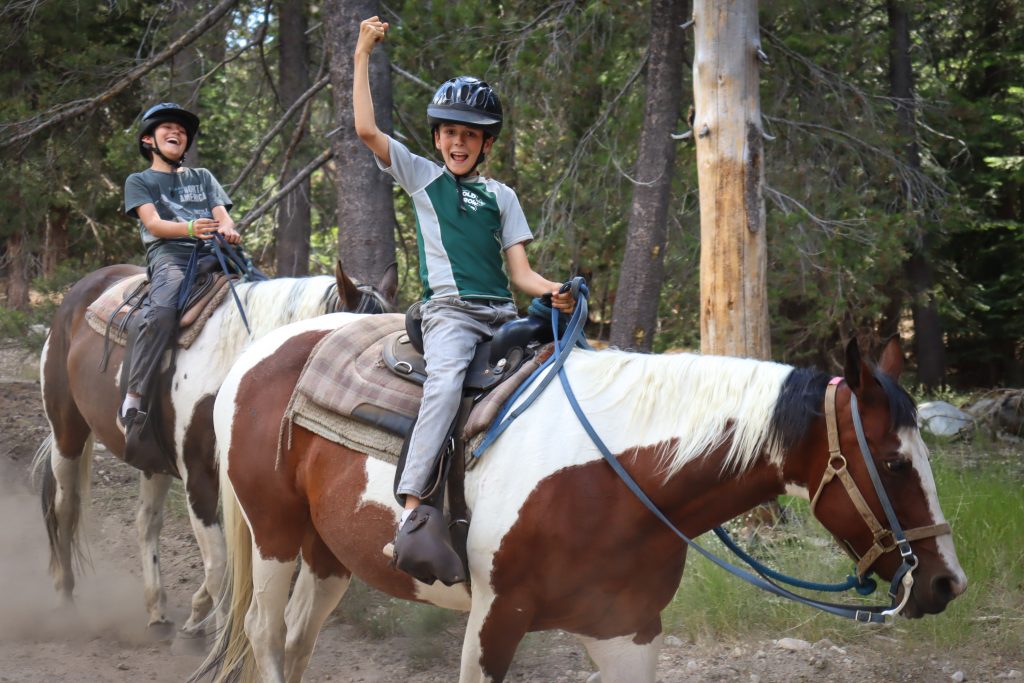 Originally published on Sunshine Parenting
Originally published on Sunshine Parenting
By Audrey “Sunshine” Monke
As parents of this generation, we’ve been told that great parenting means being super-involved with our children and always being in constant communication with them. We give them cell phones as soon as we feel they are ready to have a bit of independence so that we can be assured that they will call us the minute they need us.
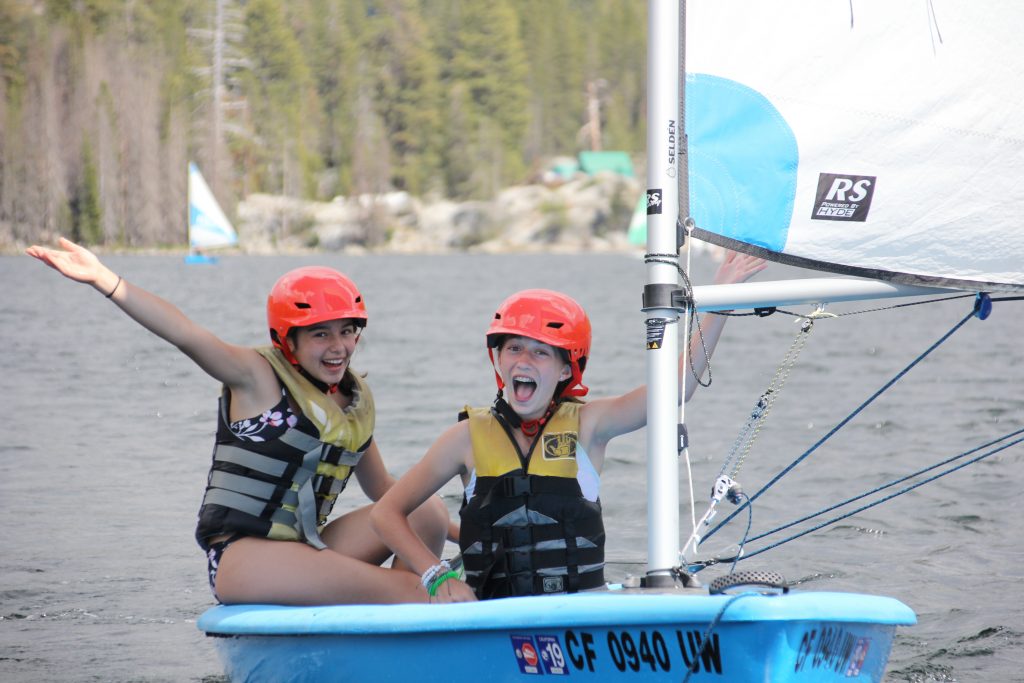
There are many benefits to this parenting style. We know our kids well and have developed close family relationships. We also know each of their homework assignments (and assist with a few of them), the drills they did at soccer practice (because we either coached their team or stayed and watched), and what they ate for snack at school. The downside to our “helicopter” parenting, though, is it makes it difficult for our children to develop their independence, problem-solving, and decision-making skills.
Hooray for camp! Without a cell phone (or their parent next to them) to immediately turn to when they are faced with a decision, campers learn to use other resources – including their own great minds. Without us watching them and being a reminder of what they’ve been scared of in the past, they challenge themselves and try something new. The confidence that results from their accomplishments and independence can be life-changing, and the best thing we hear from our campers and parents is that camp truly makes their life better.
According to past staff member and camper, Renee “Zippy” Tucknott, “Gold Arrow Camp taught me early in life that I can survive in the world without my parents making my decisions, and I am able to make my own decisions and choices that will impact my life. When I got to college, I experienced some of the same decisions and choices and already knew I could survive on my own.”
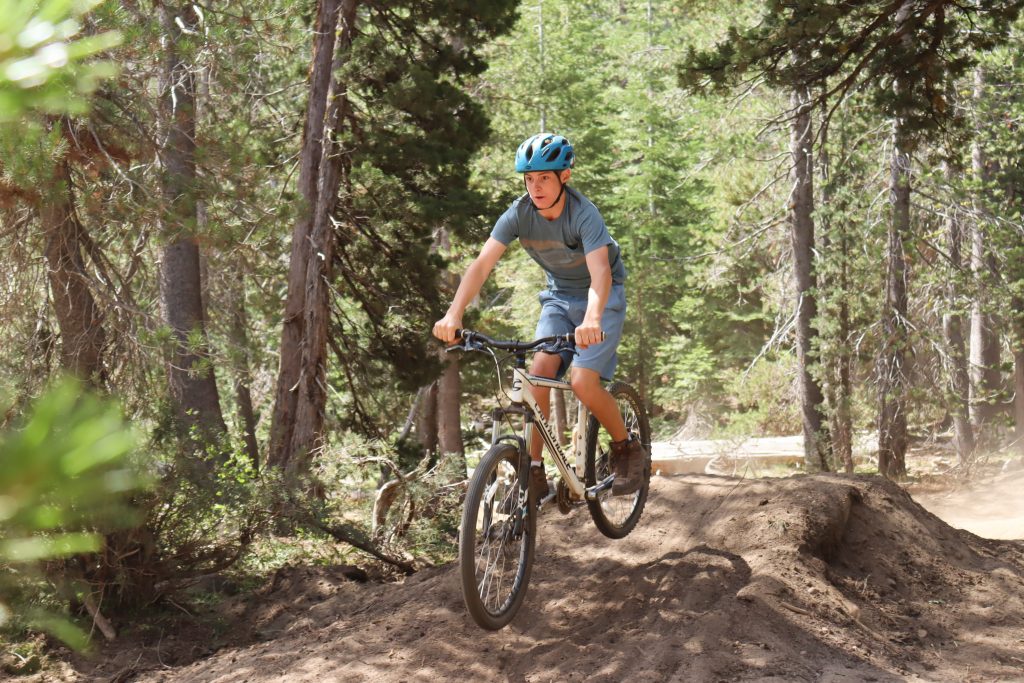
As technology has provided us with the ever-increasing ability to be in touch– immediately – with everyone, it has also given the children and young adults of this generation a crutch that we (those of us in our late 30s and up) did not have. When faced with a decision or problem with a friend, we had to rely on ourselves first and later discuss it with our parents. Now, kids are getting accustomed to calling their parents before attempting to solve the challenge on their own.
At GAC, we have a great support network to help our campers work through challenges, fears, and problems that may come up. They never feel “alone,” but they feel independent from their parents, and a lot of pride comes from that independence.
So, enjoy your child’s stay at GAC this summer and rest assured that while your helicopter is parked, your child is spreading their wings!
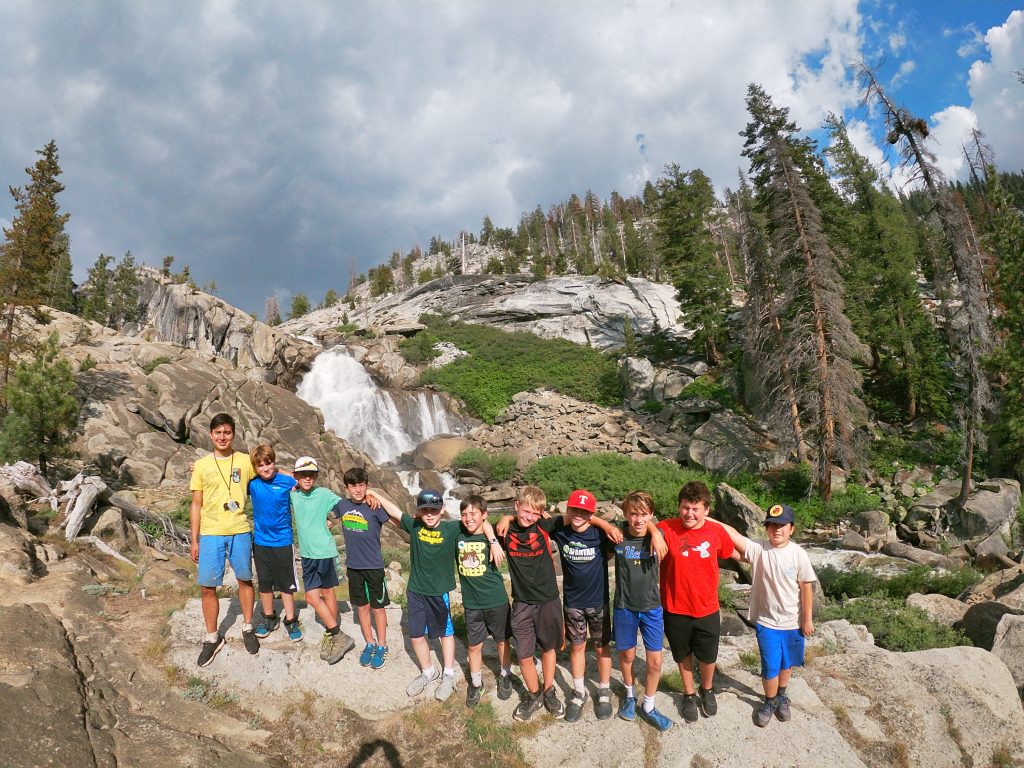
by Audrey “Sunshine” Monke
Wendy Mogel’s best selling book, The Blessing of a Skinned Knee, resonated with me. I can relate much of her message to camp and to my own family. I heard Dr. Mogel speak at a conference several years ago, and she continues to be active in the camp community. Many of our camp parents have heard her speak at school parenting events or have read her book. If you haven’t had a chance to read The Blessing of a Skinned Knee, I highly recommend it. In addition to sharing about the importance of letting our kids take healthy risks, and not always rescuing them from failure, Mogel gives many other valuable insights. She has recognized the value of camp experiences in the development of emotionally healthy kids, as you can read in the article “Camp Blessings” on her website.
A question I often get asked, especially by kids who haven’t yet been to GAC, is “What if I don’t want to do an activity?” Sometimes it starts with a statement, “I don’t like horses. Do I have to do that activity?”
My short answer is, “You won’t be forced to do any activities, but you will still go with your group, and you will be encouraged to try.”
I think there are three main reasons kids don’t want to do a particular activity, and they are the same reasons why adults often choose to forgo some recreational options:
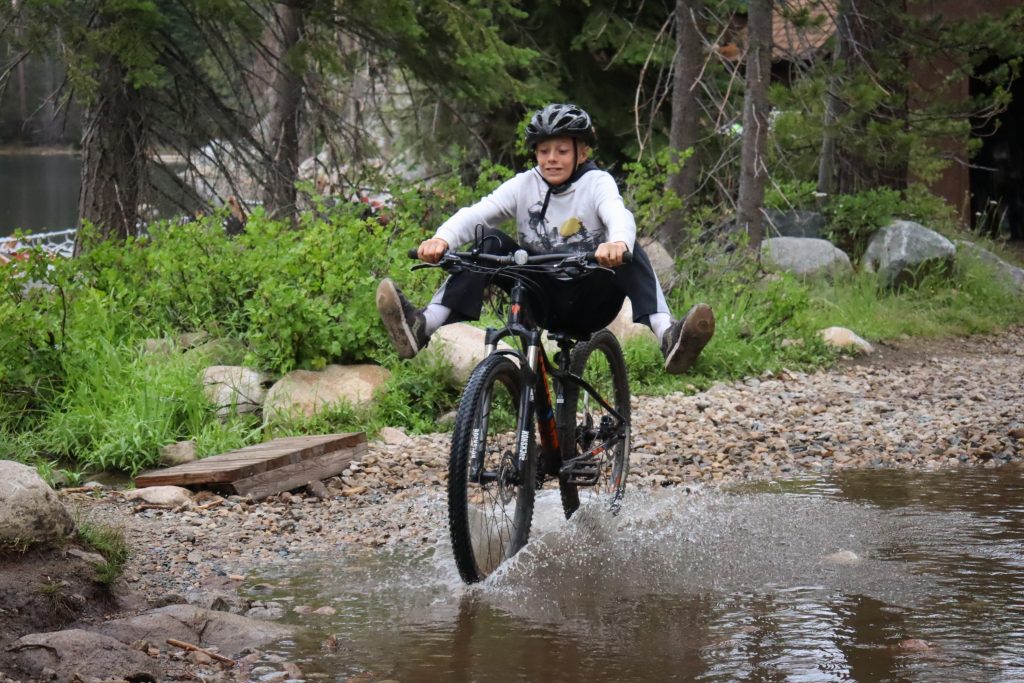
Falling off a horse, being dragged behind a ski boat and not getting up, or getting lost on a hike are all examples of negative experiences that make a person naturally inclined not to want to try again.
Fear of being humiliated. Fear of failure. Fear of heights. Fear of deep lake water. Fear of rocks. Fear of going to the bathroom in the woods. Fear of getting hurt. The list goes on and on.
It’s not in their normal repertoire of things they like and/or are good at.
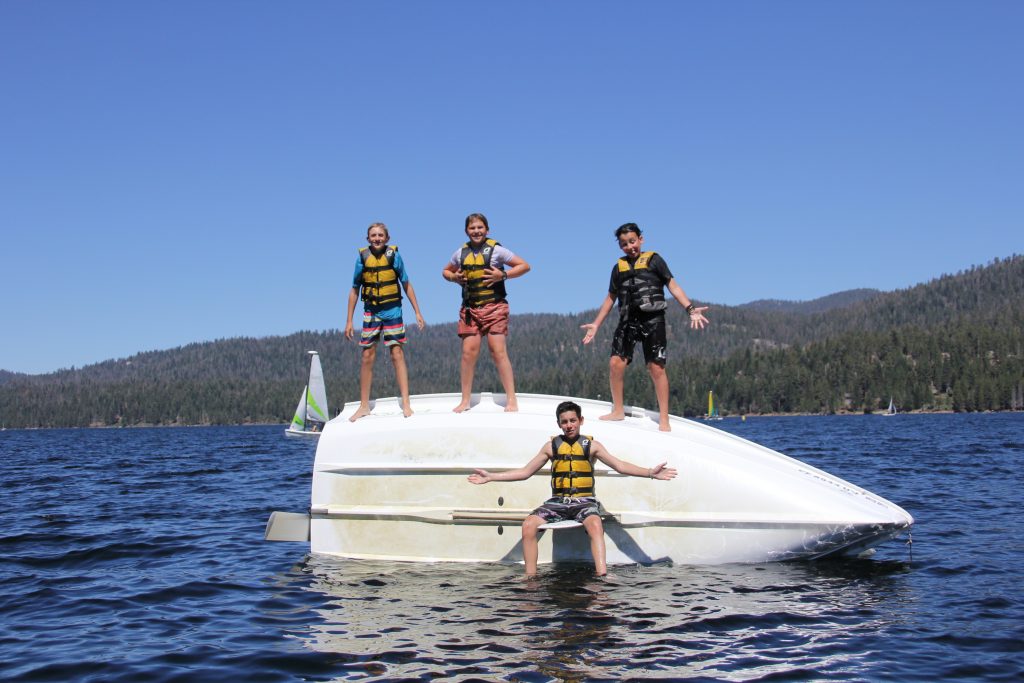
I’m sure there are other reasons for kids to not want to do an activity, but these are three that readily come to mind from what campers have told me over the years. Interestingly, the reasons kids don’t want to do an activity are the very reason for trying the activity and may be the best thing that happens at camp for that camper.
If a child doesn’t want to do an activity because of a previous negative activity, trying it at camp could lead to either a changed mind (and a new activity they like) or, at the very least, a not-as-negative experience to remember.
If a camper doesn’t want to do an activity because of fear, then trying the activity could be the most life-changing 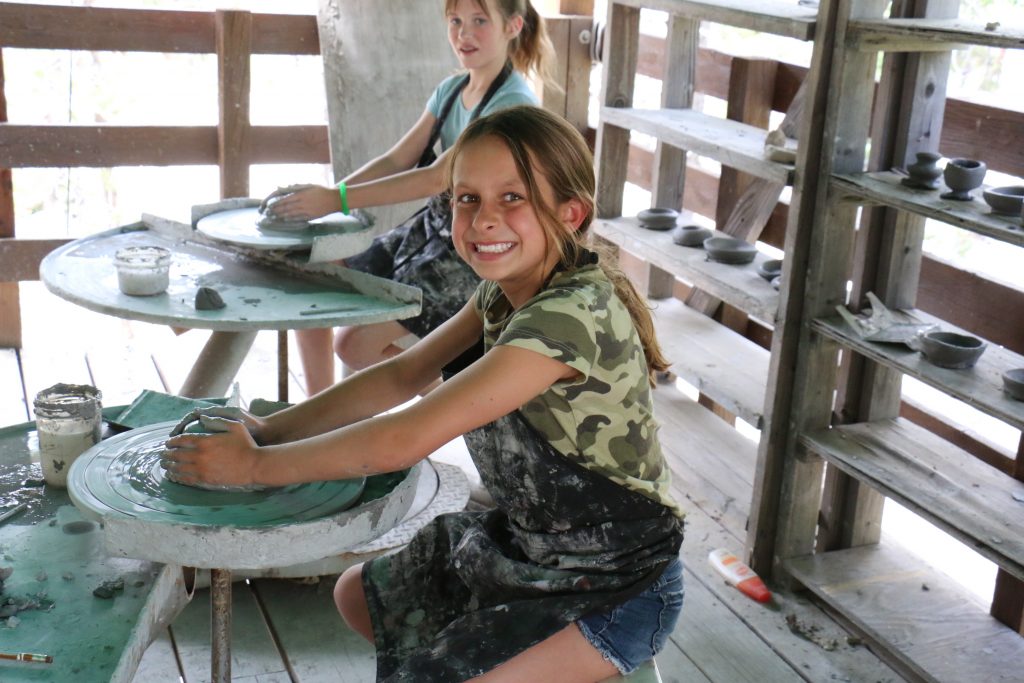 event that occurs for that camper during their camp stay. Overcoming fears and challenging oneself to attempt something that seems impossible can lead to great feelings of accomplishment and improved confidence. With the support and encouragement from cabin mates and counselors, campers feel on top of the world after successfully trying something they feared. For the camper with a fear of heights, climbing half-way up the ladder on the high ropes course will be celebrated as a huge accomplishment, and one that can make him/her proud. This is an example of something hard that leads to something good, a theme that Dr. Mogel stresses. The camp environment offers a supportive place for kids to learn how to overcome fears and accomplish things they didn’t think were possible.
event that occurs for that camper during their camp stay. Overcoming fears and challenging oneself to attempt something that seems impossible can lead to great feelings of accomplishment and improved confidence. With the support and encouragement from cabin mates and counselors, campers feel on top of the world after successfully trying something they feared. For the camper with a fear of heights, climbing half-way up the ladder on the high ropes course will be celebrated as a huge accomplishment, and one that can make him/her proud. This is an example of something hard that leads to something good, a theme that Dr. Mogel stresses. The camp environment offers a supportive place for kids to learn how to overcome fears and accomplish things they didn’t think were possible.
If a camper doesn’t want to do an activity because they don’t think they’ll like it based on their preferences or perception of themselves, trying something different offers an opportunity for expanded confidence. A camper who sees himself as non-athletic and more adept at target sports may shy away from the more physical activities, yet trying and accomplishing them could change his perception of himself in a positive way. A camper who likes shopping and clothes and sees herself as not an “outdoorsy” kind of person may dread going on a backpacking trip. Yet, the experience of cooking and sleeping outdoors could lead to an expanded view of herself and an appreciation for the many different facets of a personality. Sometimes, the activity a camper thought would be their least favorite becomes a favorite!
So, when a camper tells us all the reasons why they “don’t want to” or “can’t” do an activity this summer, we will continue to encourage them to “give it a try,” because we know the hidden blessings in the least favorite activity.
We are so lucky to have such amazing staff at Gold Arrow Camp, and every so often they are recognized for their incredible work outside of GAC. We want to take this opportunity to congratulate our very own Andy “Soy” Moeschberger on being awarded not one, not two, but three awards this year! He has worked so hard on many projects, especially legislative work to keep camps running and at the forefront of discussions amongst our political leaders. His work does not go unnoticed and we are so glad that it was noticed on a national level!
Grant Gerson Service Award – WAIC (Western Association of Independent Camps)
-The Grant Gerson WAIC Service Award pays tribute to those who make an extraordinary contribution to WAIC and to the advancement of the camp movement, and who have played an important role in the success of the association.
Southern California/Hawaii Service Award – ACA SoCal/Hawaii (American Camp Association)
-The Service Award is given as recognition to exceptional service to camping and the local area.
National Service Award – ACA (American Camp Association)
-This Service Award is designed to recognize continued and increasing service beyond the field/affiliate office level.